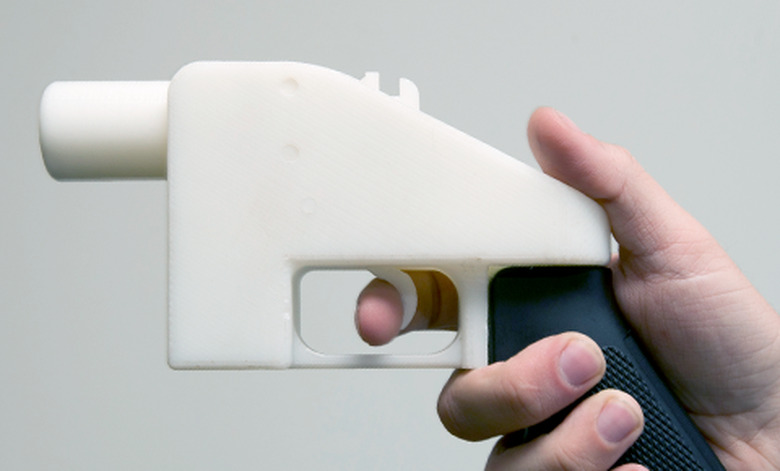Judge Blocks Release Of 3D-Printed Gun Plans One Day After Jacksonville Madden Shooting
One day after the deadly shooting in Jacksonville, Fla., at a Madden video game tournament that killed two people, a Seattle judge has ruled that the Trump administration shouldn't be allowed to let a Texas-based firearms company make downloadable plans for 3D-printed guns available online.
As we reported back in July, thanks to a settlement between that company, Defense Distributed, and the State Department in June, the plans were set to be available to download online starting Aug. 1 — plans for firearms including the AR-15, which has been used repeatedly in mass shootings across the U.S. It would have been a win for Defense Distributed founder Cody Wilson, who'd fought for years to get to this point and who once said in an email to TechCrunch that guns should be "as downloadable as music. There will be streaming services for semi-automatics."
Nineteen states and the District of Columbia quickly sought an injunction to stop those gun plans from being released on the Web. They cited security concerns, such as the fact that they wouldn't be traceable since there would be no serial number on a 3D-printed gun that anyone can produce and that those guns would also be available to people without a background check.
Judge Robert S. Lasnik of the U.S, District Court for Western Washington extended a temporary restraining order that was already in place with his ruling today. It will now stay in place until the legal issues here are resolved.
"The Court finds that the irreparable burdens on the private defendants' First Amendment rights are dwarfed by the irreparable harms the States are likely to suffer if the existing restrictions are withdrawn and that, overall, the public interest strongly supports maintaining the status quo through the pendency of this litigation," Lasnik wrote in the ruling, as reported by CNN.
We should add that even President Trump himself has expressed skepticism about making 3D-printed guns widely available, tweeting on July 31: "I am looking into 3-D Plastic Guns being sold to the public. Already spoke to NRA, doesn't seem to make much sense!"
Defense Distributed first posted designs online for a 3D-printed handgun back in 2013. The founder sued the government, who'd ordered him to take the plans down, and the Trump administration settled the case earlier this year.
According to CNN, the Undetectable Firearms Act already makes it illegal to own or make homemade plastic guns. "A metal firing pin and a piece of metal are included in Defense Distributed's 3D-printed gun so that it complies with the law."
It's also worth noting that more than 1,000 people had already downloaded plans for the 3D guns before today's ruling.
